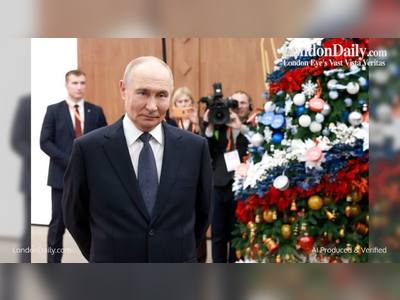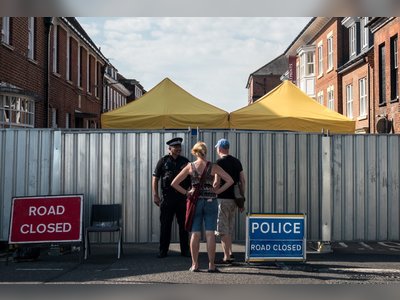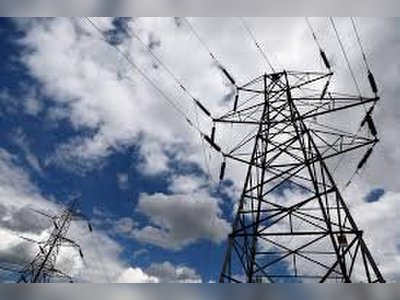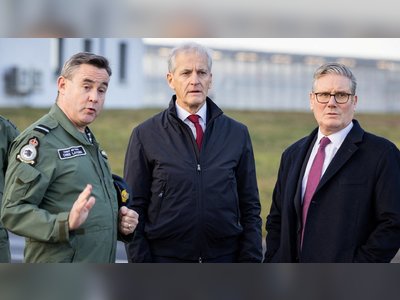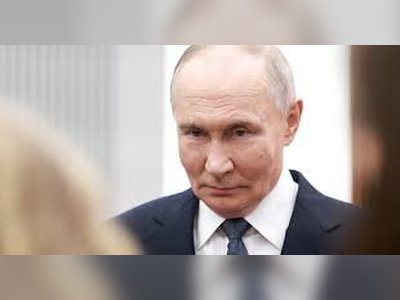Russia's Ballistic Blitz on Kyiv Sends Shockwaves Through Global Stability
As Russia escalates the Ukraine conflict with missile strikes, the world grapples with a cascade of geopolitical and humanitarian crises.
In a jarring reminder of the relentless strife enveloping Eastern Europe, Russia has launched a barrage of eight ballistic missiles on Kyiv, further inflaming the ongoing conflict in Ukraine.
This overt show of aggression by Moscow underscores Vladimir Putin's defiance in the face of global condemnation, highlighting a strategic calculus that prioritizes the demonstration of military might over diplomatic engagement.
The implications of Russia’s aggressive posture extend well beyond the immediate theatre of war, casting a long shadow over global security.
The reverberations are palpable, with Europe teetering on the brink of an energy crisis and looming food shortages exacerbating the humanitarian toll.
The conflict has also unsettled the post-Cold War international order, prompting a re-evaluation of geopolitical alliances and strategies.
Strategists and historians draw unsettling parallels to past crises, such as the Cuban Missile Crisis, where a display of firm resolve by world powers averted disaster.
Yet, the thin line between assertiveness and escalation remains a pressing concern.
Could a miscalculation in the current climate ignite a broader confrontation?
The lessons of history caution against both appeasement, which risks emboldening authoritarian regimes, and unchecked aggression, which could spiral into greater conflict.
As global leaders navigate this precarious landscape, the discourse shifts towards the need for reforming international institutions that seem increasingly ill-equipped to manage such crises.
This reform could entail a recalibration of power dynamics, shifting away from traditional military prowess towards more nuanced forms of diplomacy and leverage, such as economic influence and cyber capabilities.
However, as strategic dialogues and policy reforms unfold, the immediate human cost of the conflict remains profoundly distressing.
Millions of Ukrainians face daily hardships and horrors, their stories often overshadowed by the broader strategic narrative.
It is crucial to remember the shared human cost and the urgent need for concerted humanitarian efforts alongside strategic deliberations.
As the world walks this tightrope of diplomacy and deterrence, it might do well to heed the wisdom of figures like Gandhi, reminding us of the need to preserve our shared humanity in the face of conflict.
As the adage goes, ‘An eye for an eye will only make the whole world blind.’ It is a stark reminder of the high stakes involved as global powers attempt to chart a course through this complex and fraught geopolitical landscape.
This overt show of aggression by Moscow underscores Vladimir Putin's defiance in the face of global condemnation, highlighting a strategic calculus that prioritizes the demonstration of military might over diplomatic engagement.
The implications of Russia’s aggressive posture extend well beyond the immediate theatre of war, casting a long shadow over global security.
The reverberations are palpable, with Europe teetering on the brink of an energy crisis and looming food shortages exacerbating the humanitarian toll.
The conflict has also unsettled the post-Cold War international order, prompting a re-evaluation of geopolitical alliances and strategies.
Strategists and historians draw unsettling parallels to past crises, such as the Cuban Missile Crisis, where a display of firm resolve by world powers averted disaster.
Yet, the thin line between assertiveness and escalation remains a pressing concern.
Could a miscalculation in the current climate ignite a broader confrontation?
The lessons of history caution against both appeasement, which risks emboldening authoritarian regimes, and unchecked aggression, which could spiral into greater conflict.
As global leaders navigate this precarious landscape, the discourse shifts towards the need for reforming international institutions that seem increasingly ill-equipped to manage such crises.
This reform could entail a recalibration of power dynamics, shifting away from traditional military prowess towards more nuanced forms of diplomacy and leverage, such as economic influence and cyber capabilities.
However, as strategic dialogues and policy reforms unfold, the immediate human cost of the conflict remains profoundly distressing.
Millions of Ukrainians face daily hardships and horrors, their stories often overshadowed by the broader strategic narrative.
It is crucial to remember the shared human cost and the urgent need for concerted humanitarian efforts alongside strategic deliberations.
As the world walks this tightrope of diplomacy and deterrence, it might do well to heed the wisdom of figures like Gandhi, reminding us of the need to preserve our shared humanity in the face of conflict.
As the adage goes, ‘An eye for an eye will only make the whole world blind.’ It is a stark reminder of the high stakes involved as global powers attempt to chart a course through this complex and fraught geopolitical landscape.
